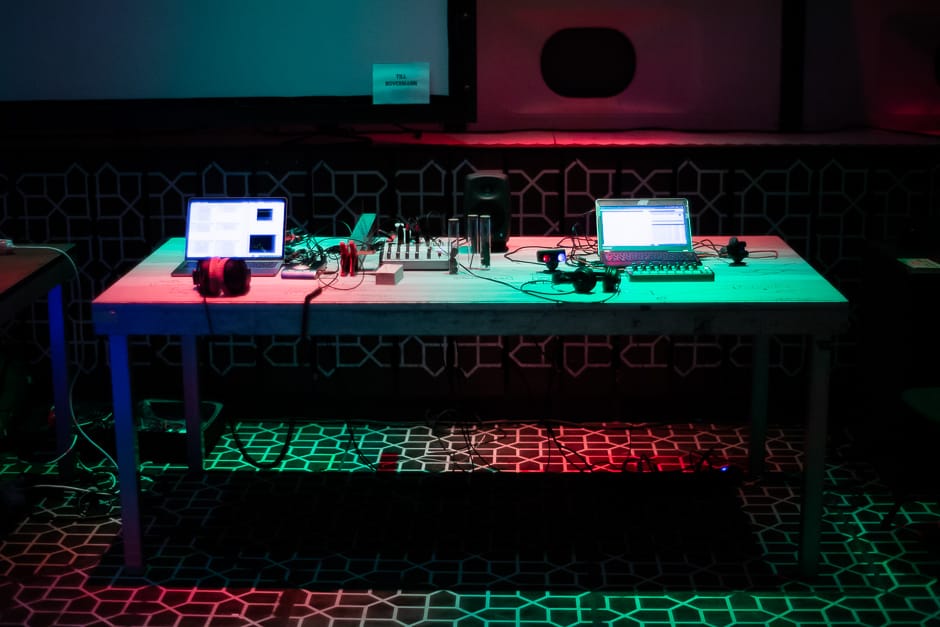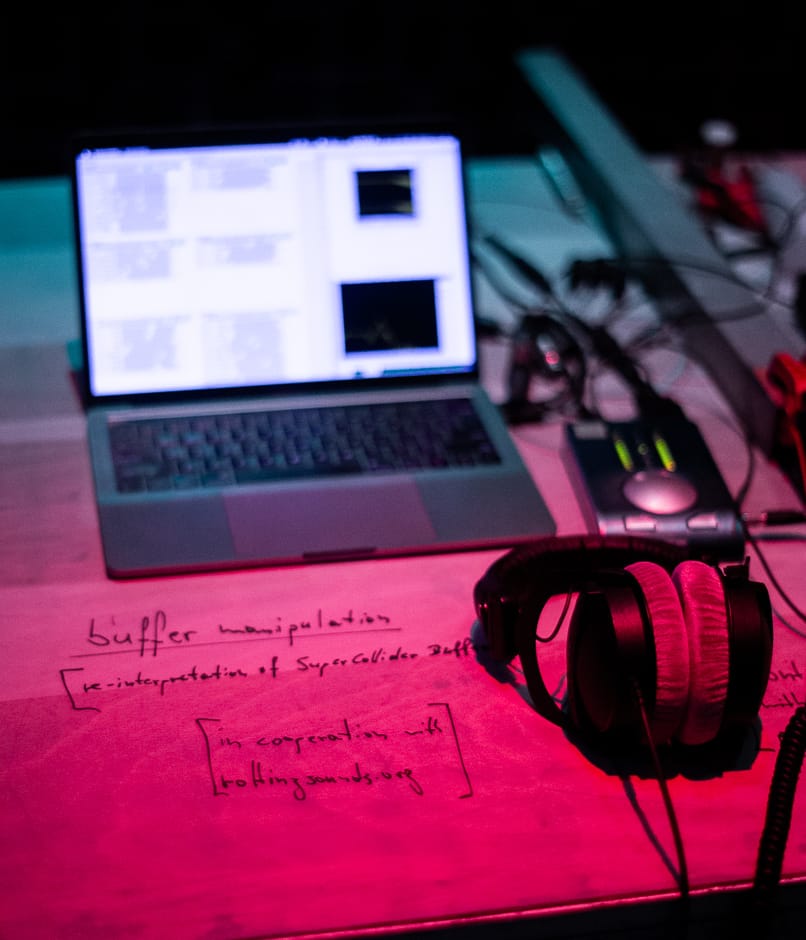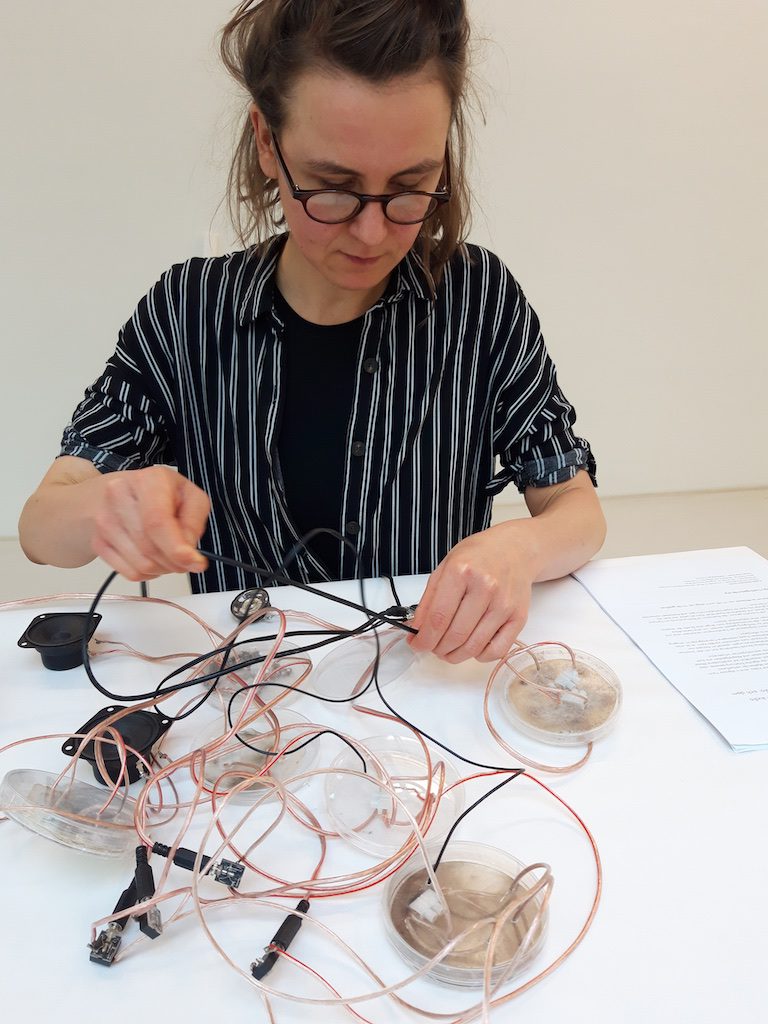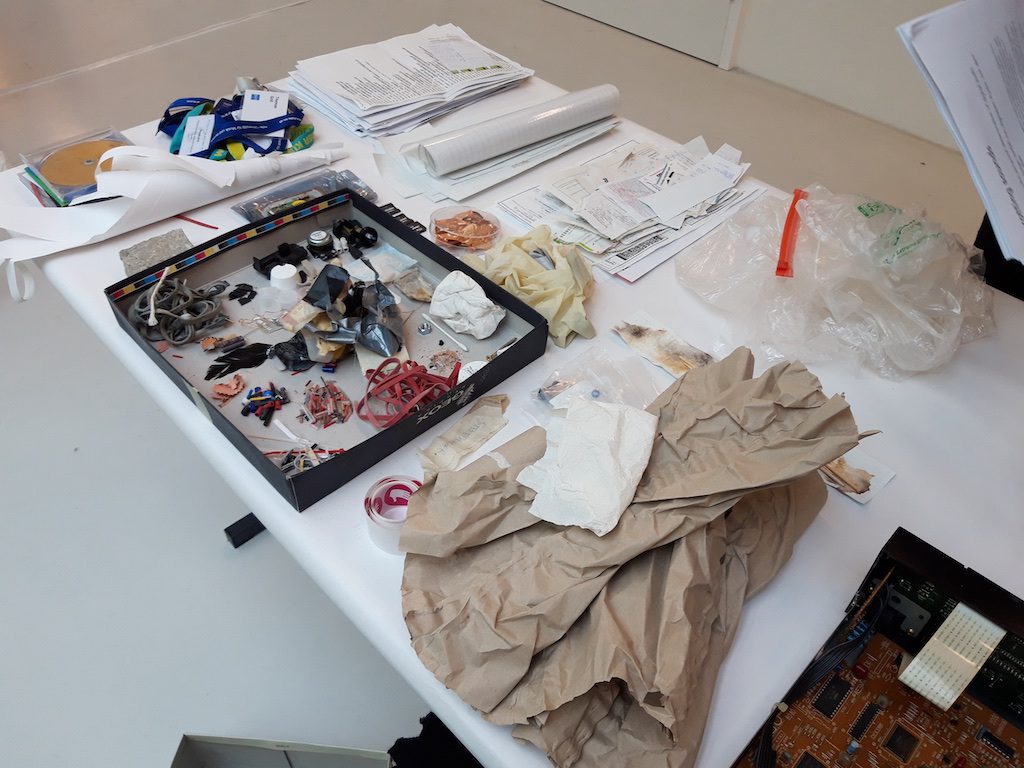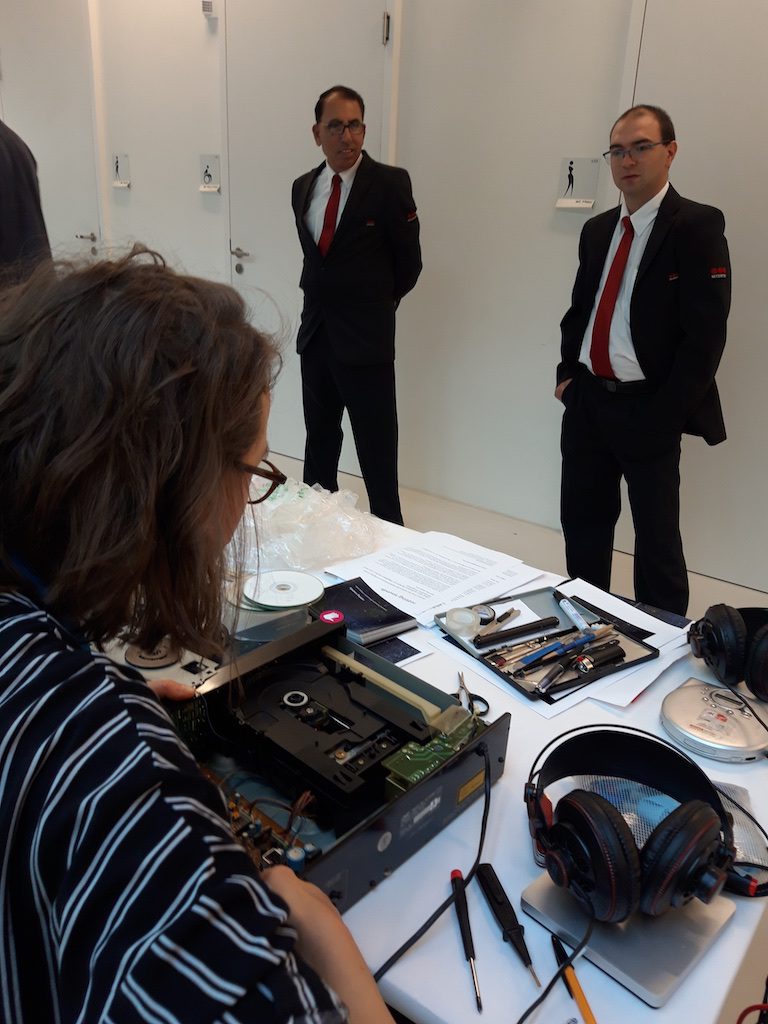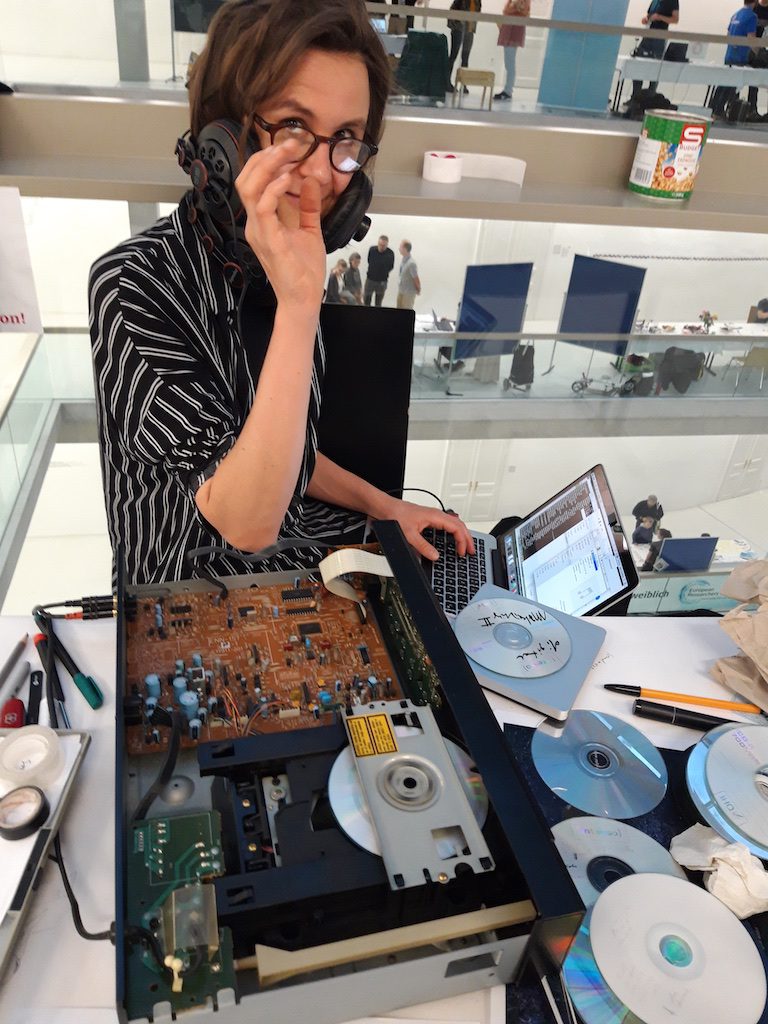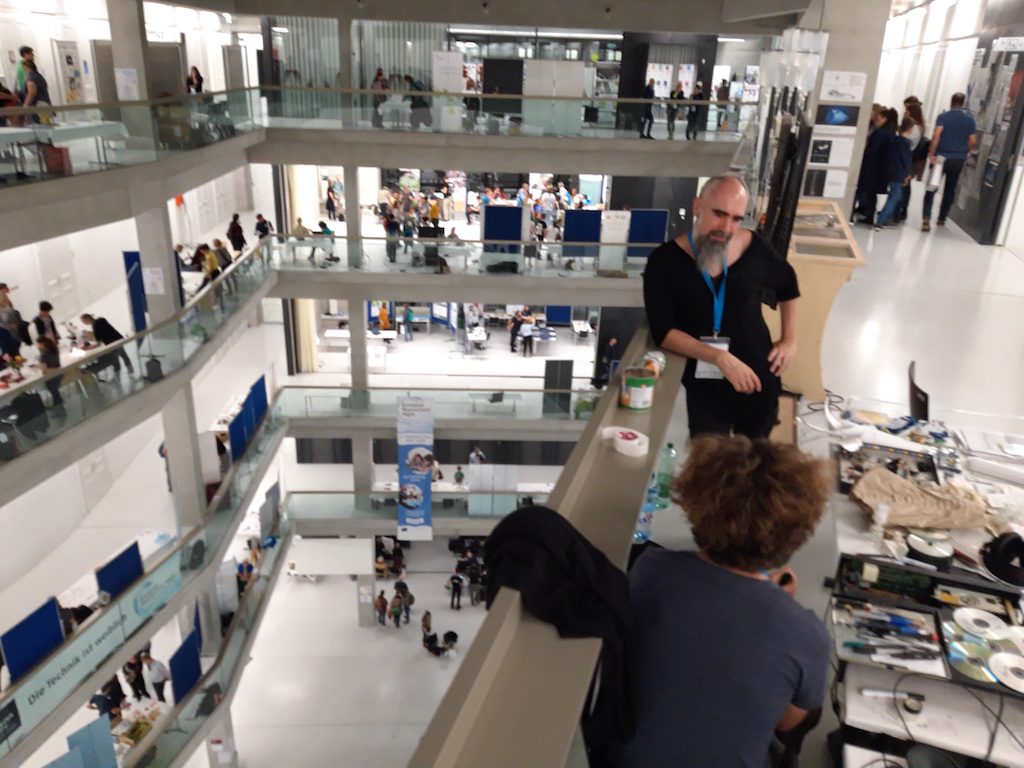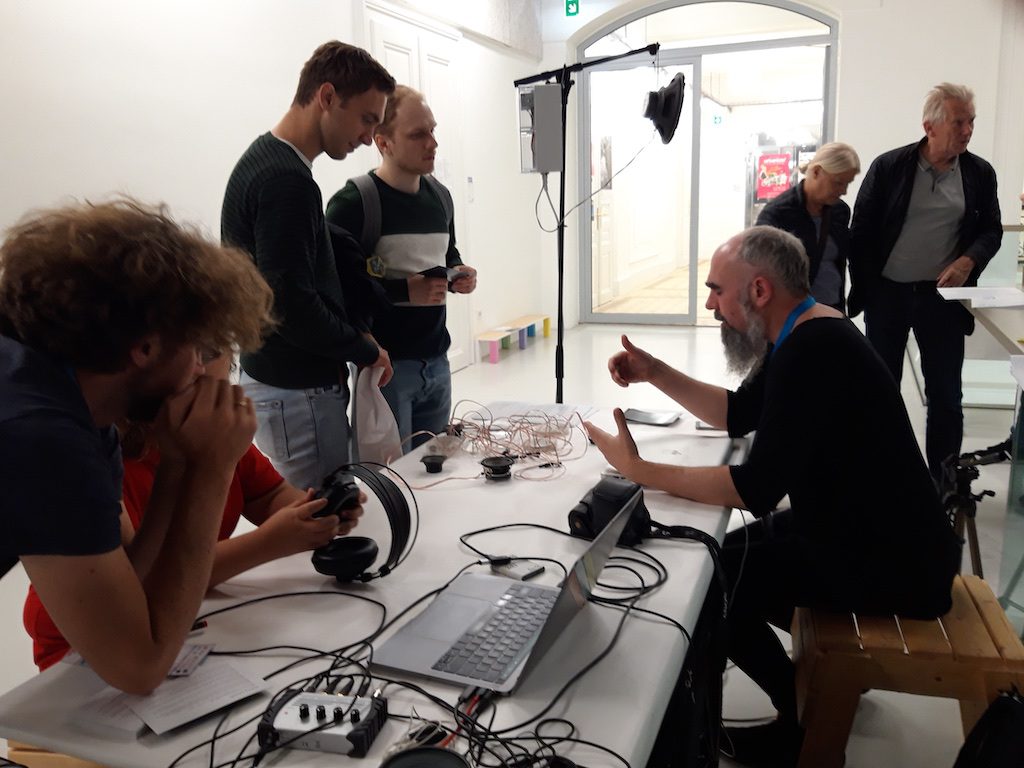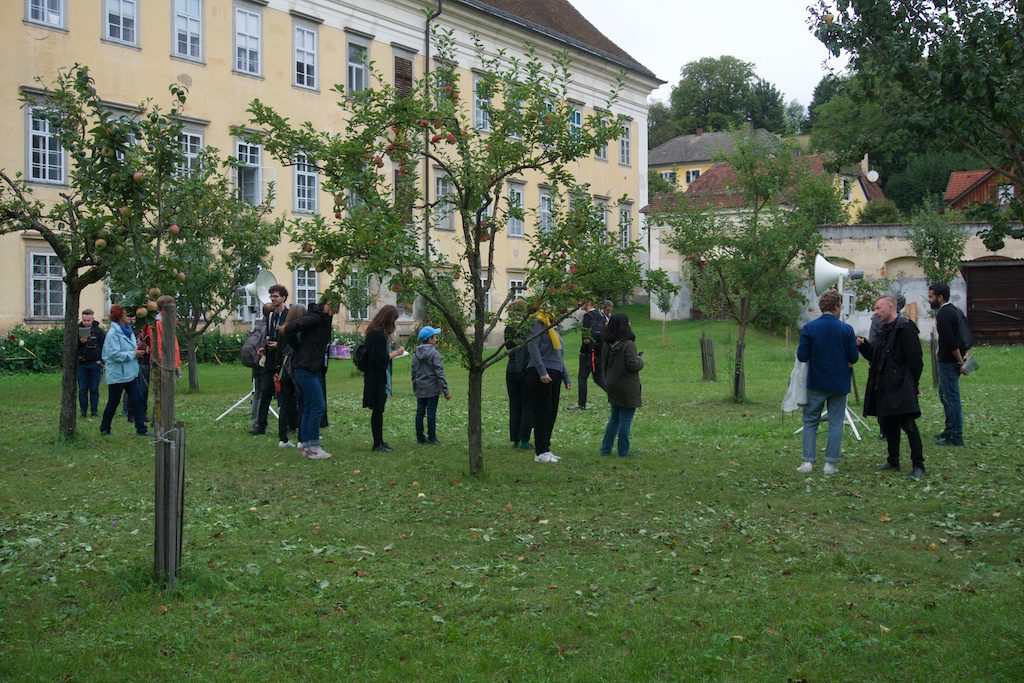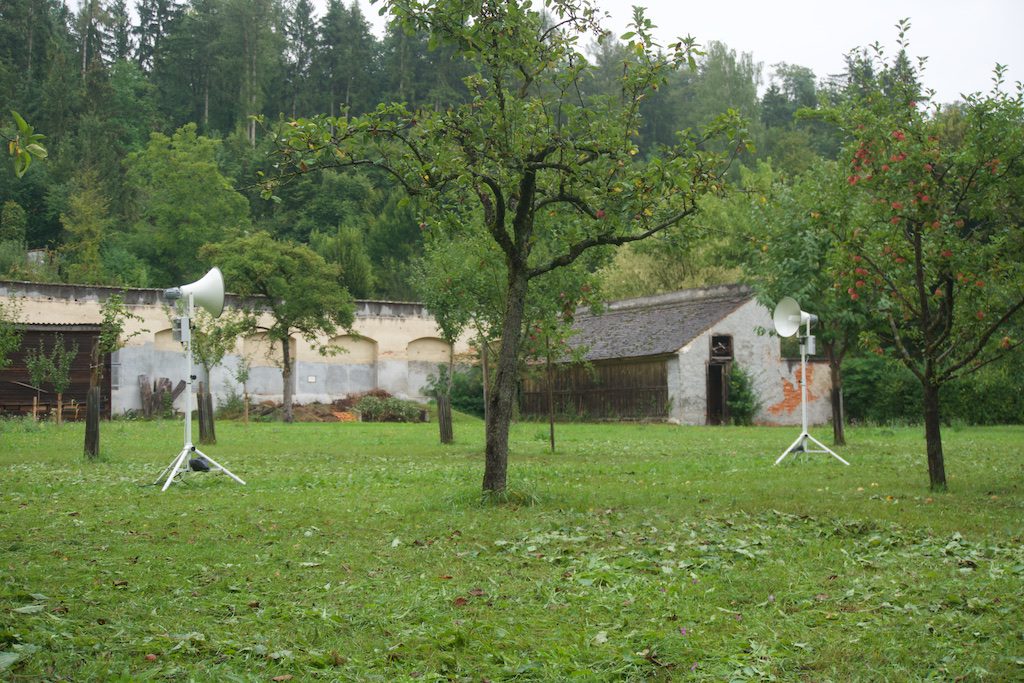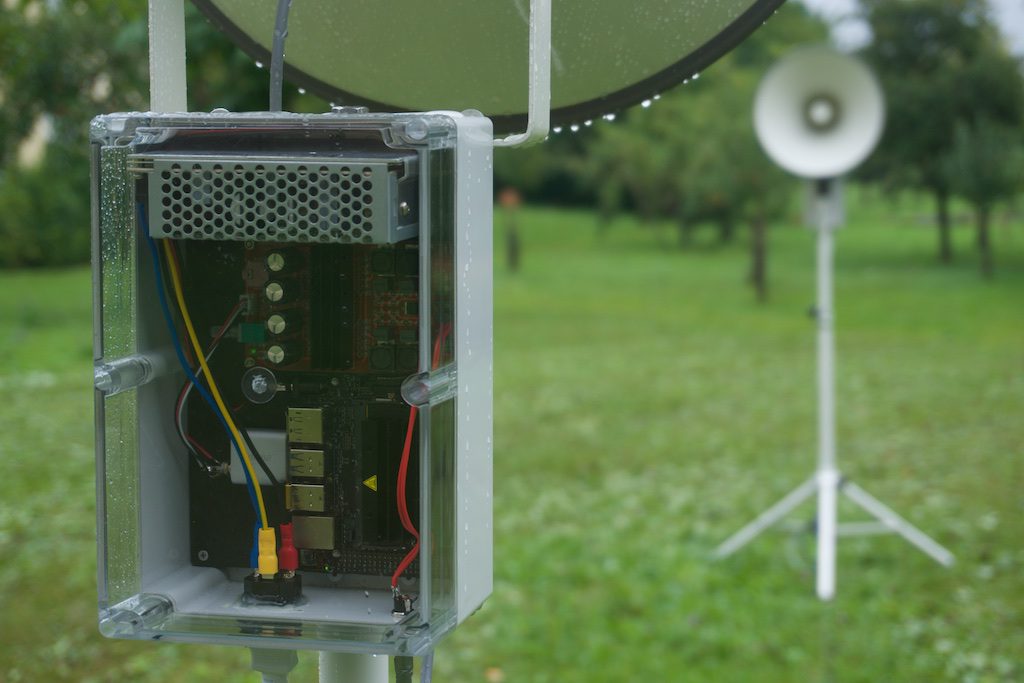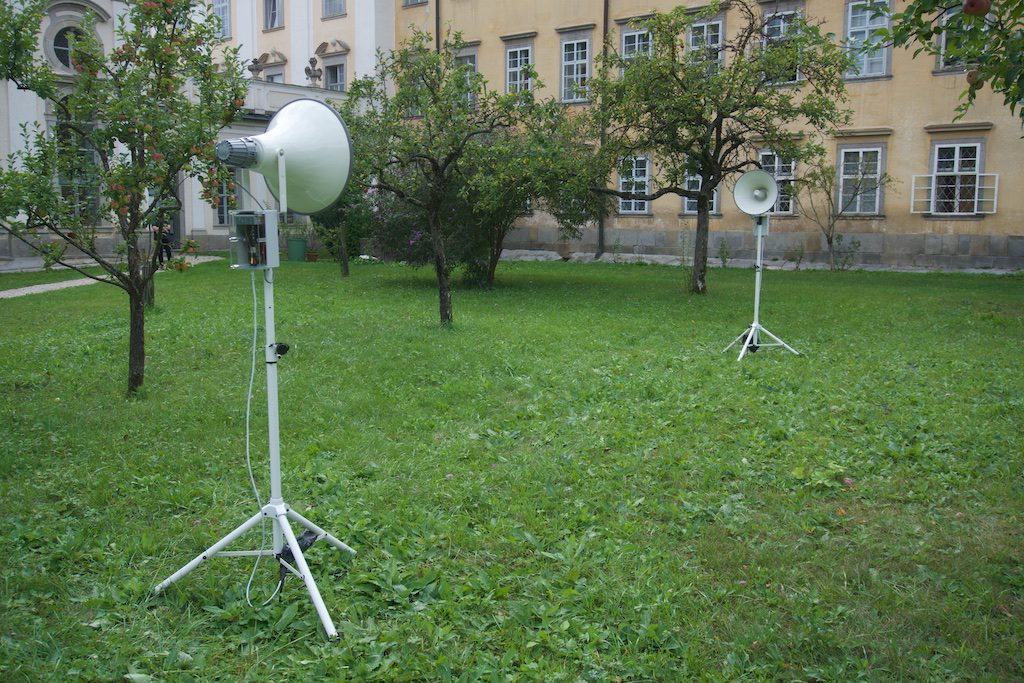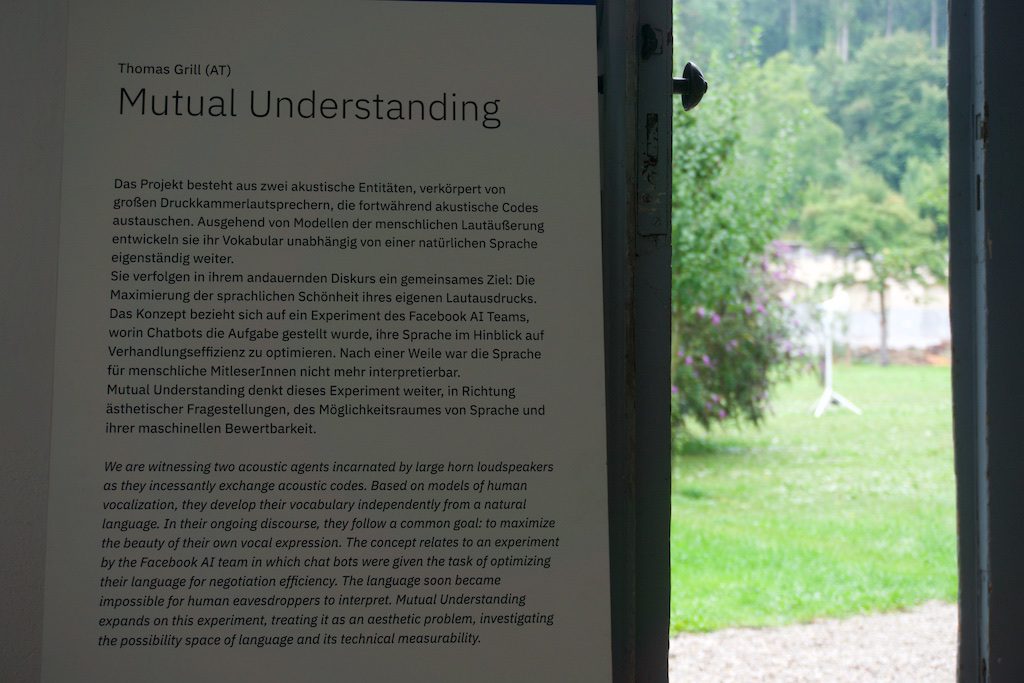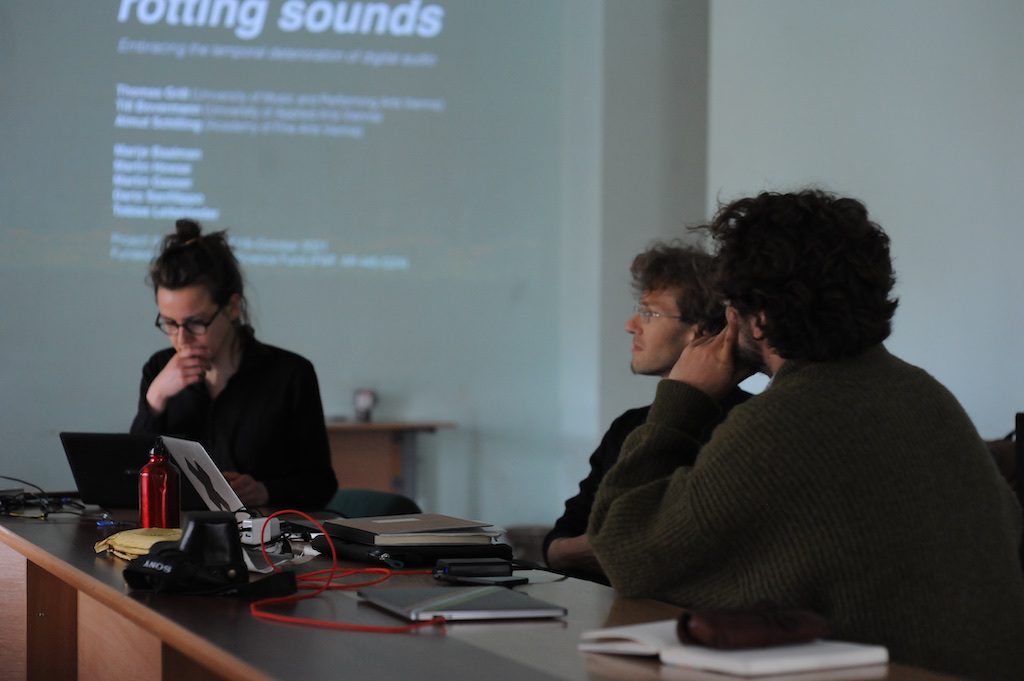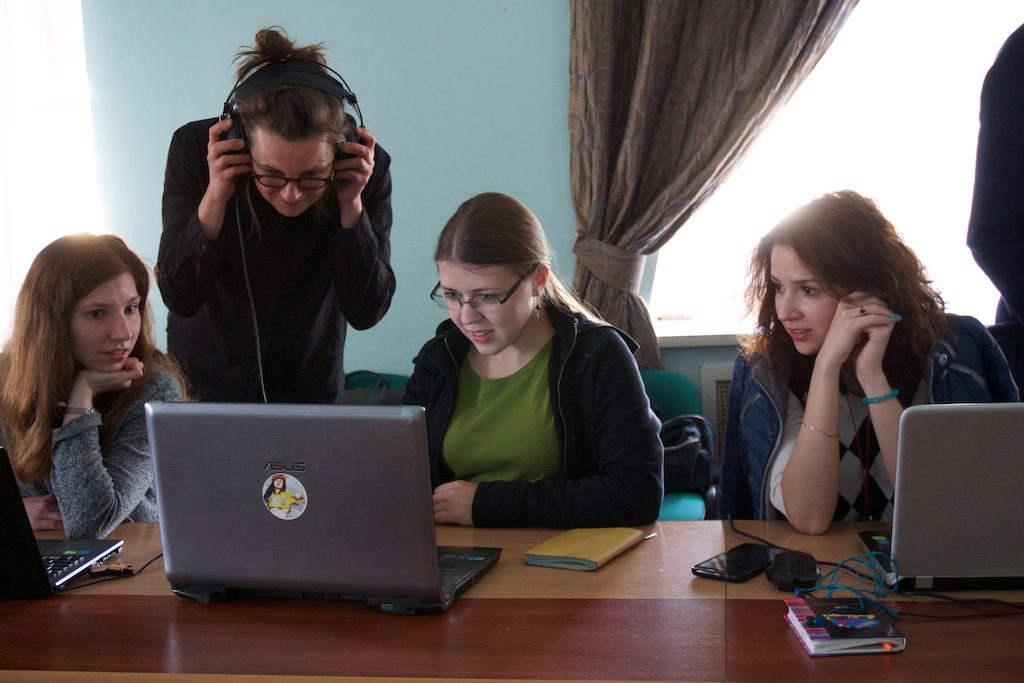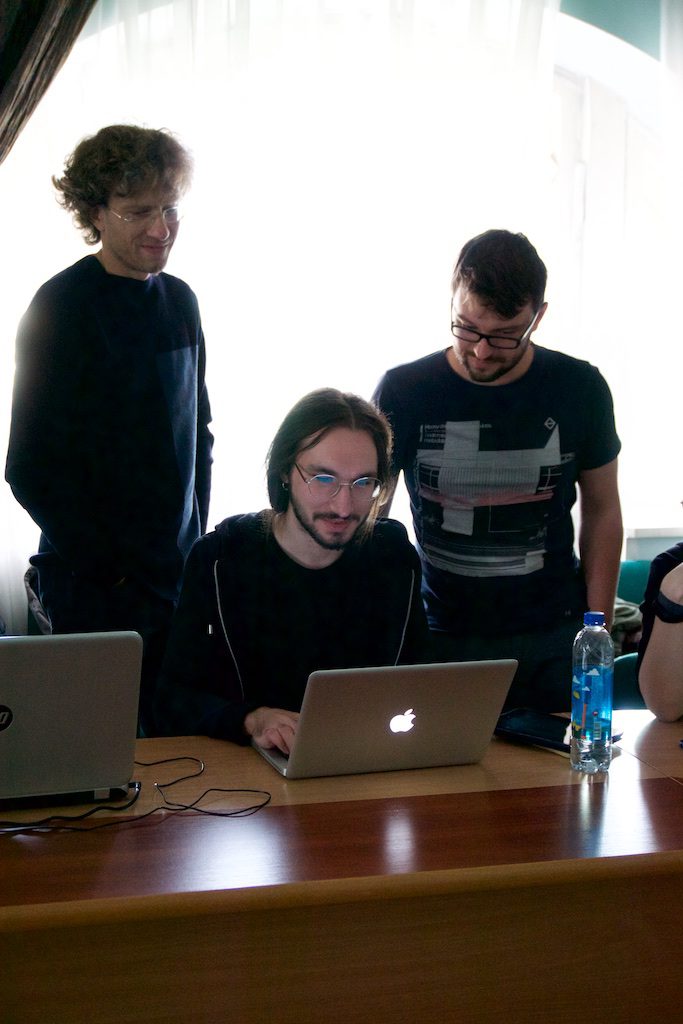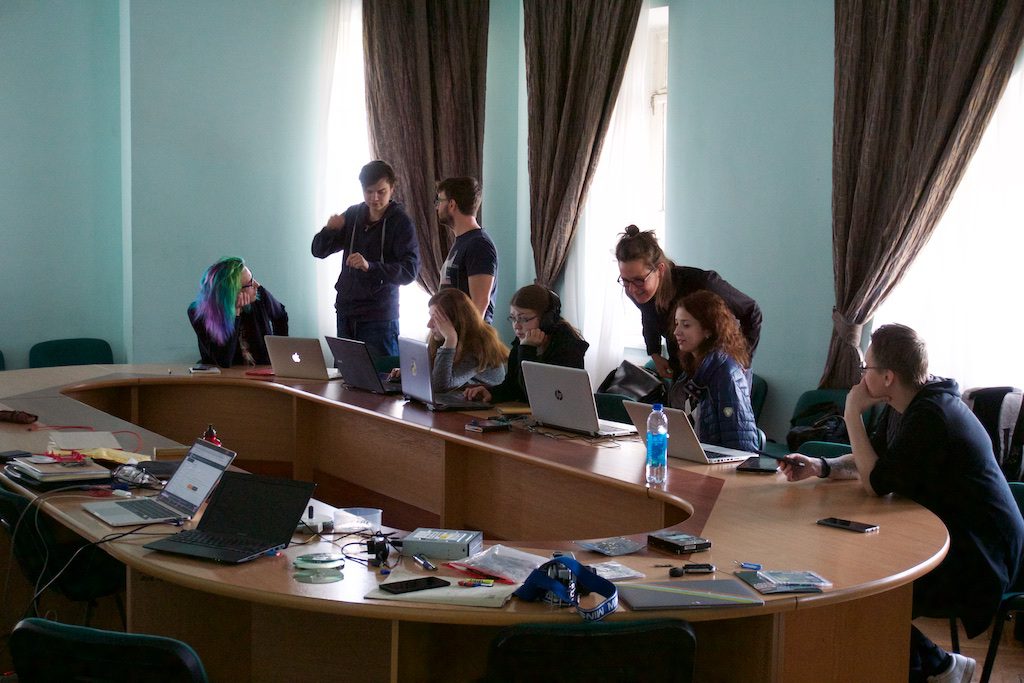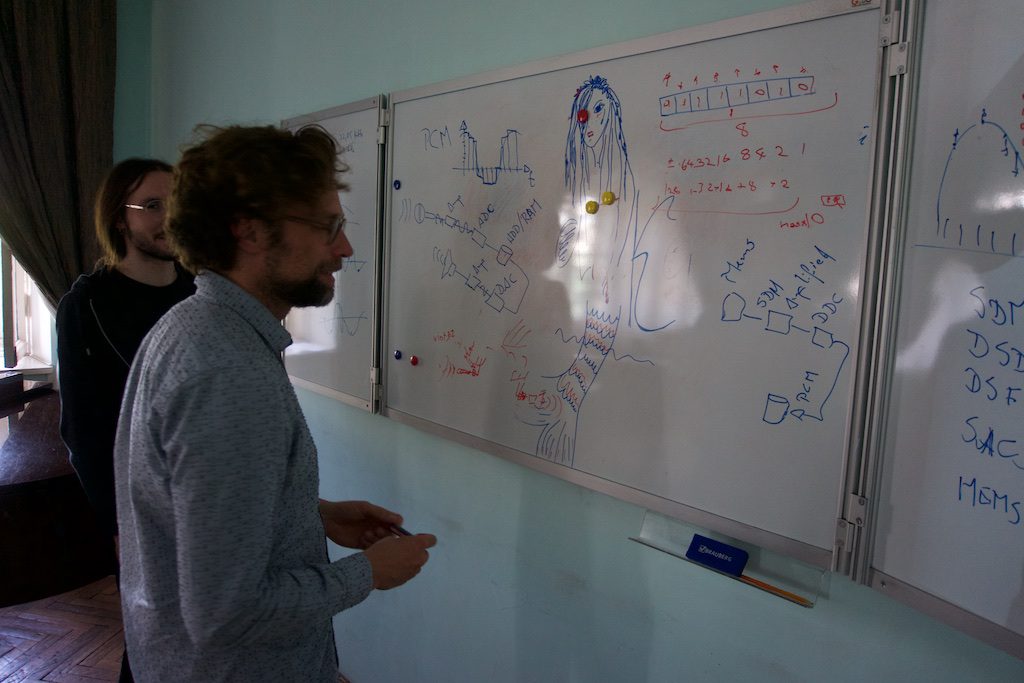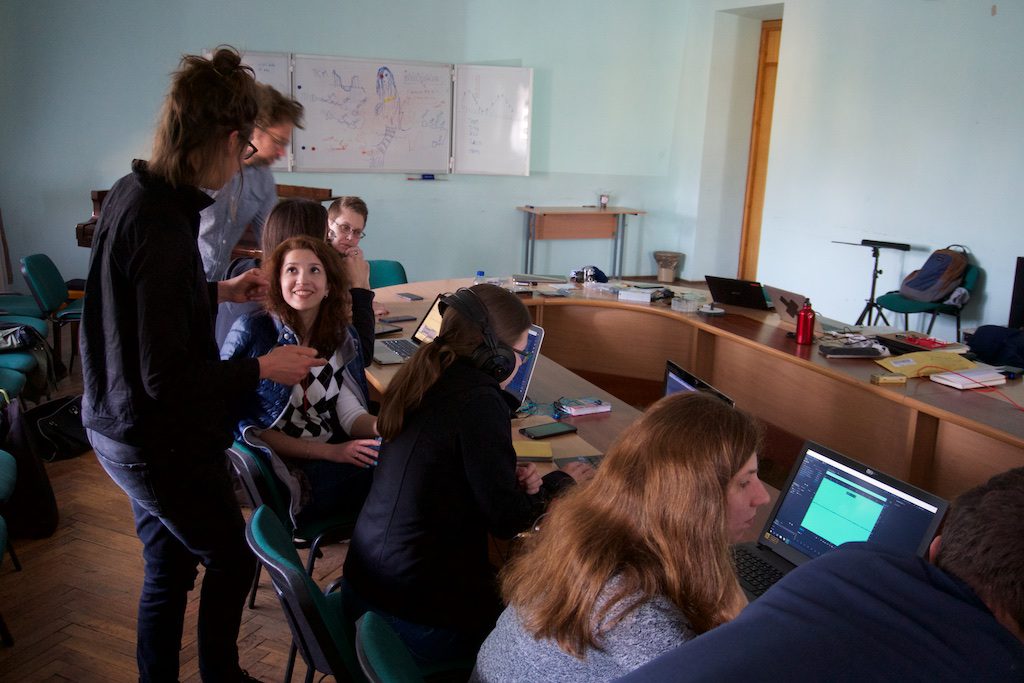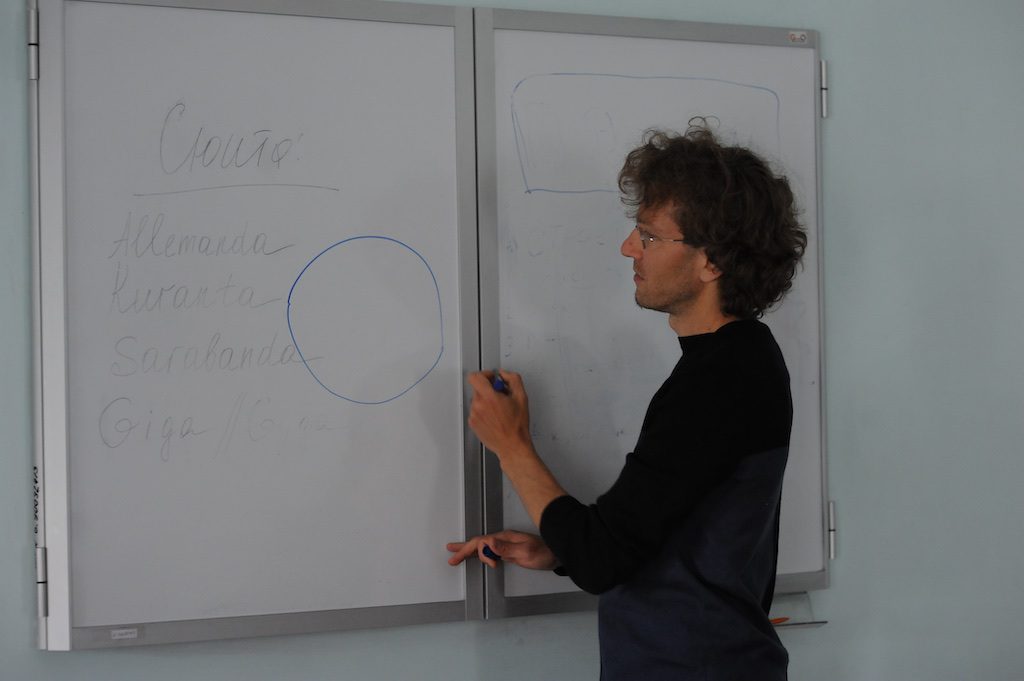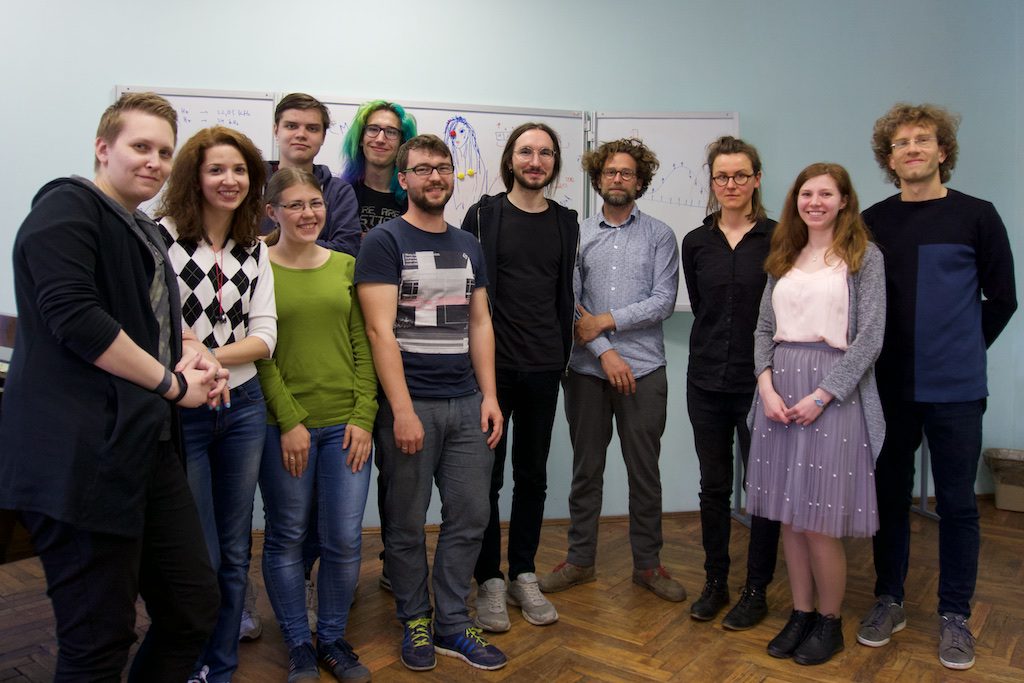Report
Article “Artistic Research Practice in Experimental Sound Art” in Zeitschrift der Gesellschaft für Musiktheorie 19/2
Bovermann, Till / Thomas Grill / Almut Schilling (2022), »Rotting Sounds. Artistic Research Practice in Experimental Sound Art«, Zeitschrift der Gesellschaft für Musiktheorie 19/2.
The majority of today’s media is produced in the digital domain. Although digital data are adorned by a myth of perfection, everyday experience does provide evidence for the existence of degradation and, ultimately, data loss in various forms. The multi-year artistic research project Rotting Sounds has investigated the causes, mechanisms, and effects of such deterioration, specifically in the context of digital audio. This report gives a condensed account of some of the theoretical foundations and methodical approaches chosen. The digital-analog interface, information encoding, as well as the deep time perspective are specifically highlighted. We present a number of artistic works that have been developed as experimental systems to co-generate questions and finally lead to various conclusions. These concern the controllability of such experiments and the interrelationships between (sound) information and its environment. The term of digital patina was introduced to characterize observed aesthetics in permanent transformation and to open up a new perspective on the existence of the digital in a material context.
https://doi.org/10.31751/1174
faust 1bit audio library at IFC2020
As announced earlier, we (Till Bovermann and Dario Sanfilippo) presented bitDSP, a library for the “faust” DSP programming language to integrate bit-based synthesis, at the International Faust Conference 2020.
Here you can find the corresponding paper as pdf. There’s also a video of the presentation. If you’re curious to use it yourself, feel free to give it a try!
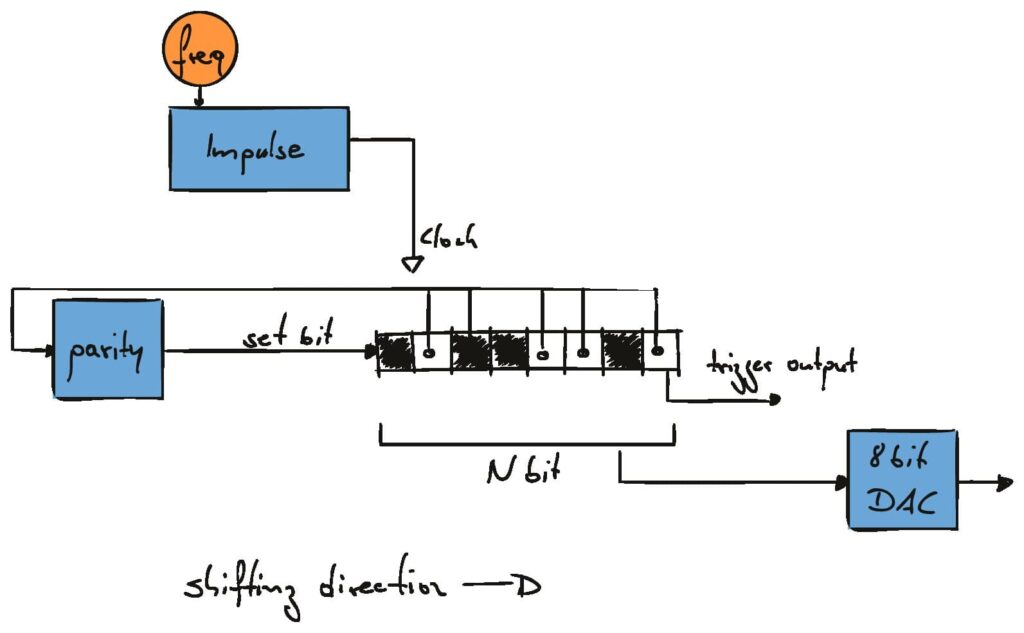
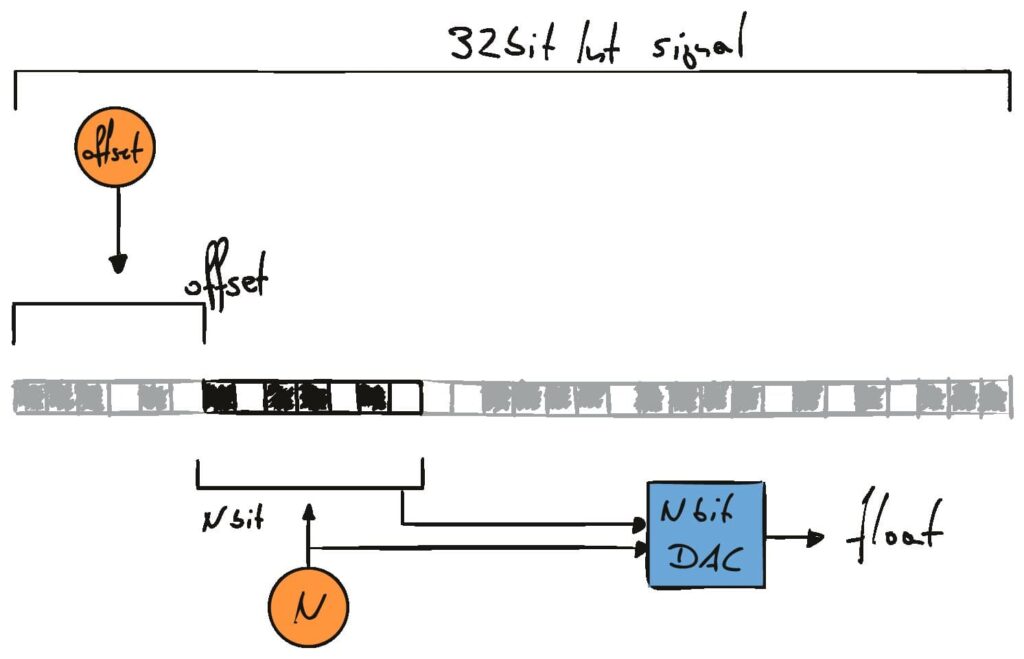


1-bit audio: Testing audio hardware
For an upcoming performance at the Ars Electronica Festival 2020 SOUND CAMPUS, we are testing hardware to interconnect 1-bit audio streams.
For that purpose, we are using an STM32F4 Discovery Board to generate 1-bit audio streams, sent through a Future Sound Systems MTX9 point pin matrix (Figure 1) as often found in modular synthesis systems.
The software used on the STM board to efficiently generate 1-bit audio streams using DMA transfer over an SPI interface is an offspring of our DADA hardware development efforts.
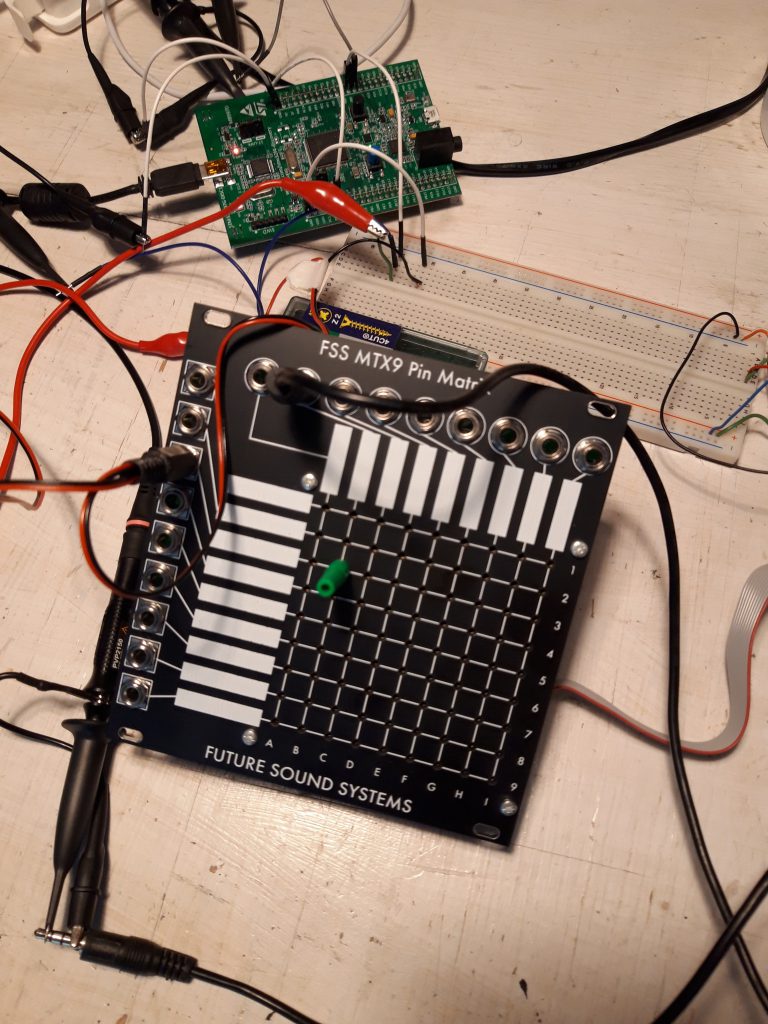
The FSS MTX9 can be used as passive hardware (only 1-to-1 connections), or using the MTX9A buffer board to sum over input busses.
In passive mode (Figure 2), the bandwidth is sufficient to come close to 1 MHz bit rate which allows 32-fold oversampling at usable PCM audio rates.
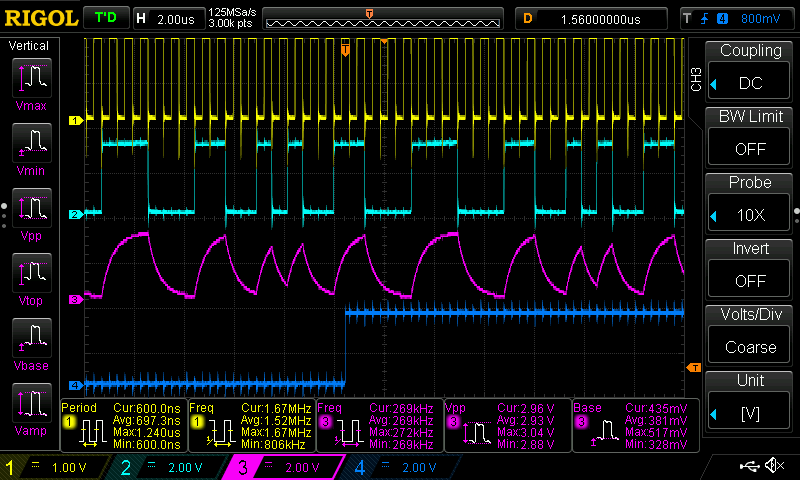
For active mode (using the buffer board MTX9A, Figure 3), the hardware introduces low-pass filtering, reducing the audio bandwidth to around 100 kHz. This is good enough for high quality analog audio, but not for 1-bit digital audio at high bit rates.
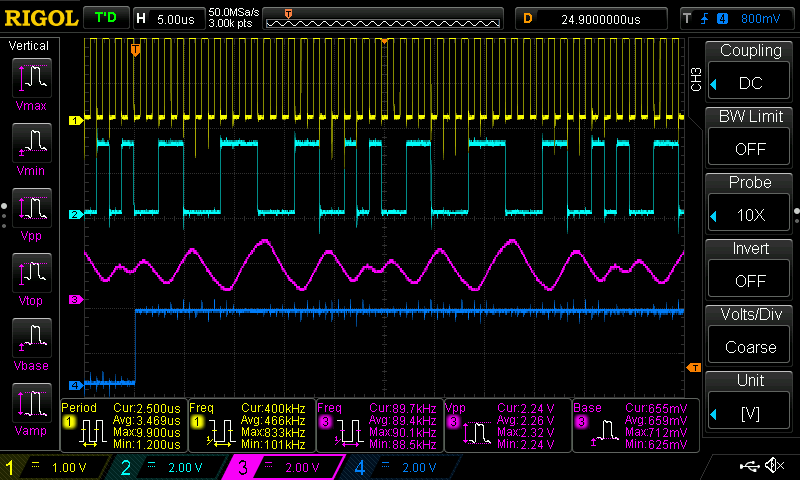
Clearly, it must be noted that the summing function over inputs is not strictly meaningful for 1-bit signals, where some kind of post-processing needs to bit applied to return to single bits.
“gestern-heute-morgen in der Konservierung” – Verrottende Klänge bei der Tagung des Österreichischen Restauratorenverbandes
At the annual conference of the austrian restorers association the rotting sounds were represented by Almut Schilling, discussing the <patina> as fundamental part of all preservation processes and opens valuable points of views to think about digital aesthetics of temporal deterioration.
6.-7.03.2020 Salzburg
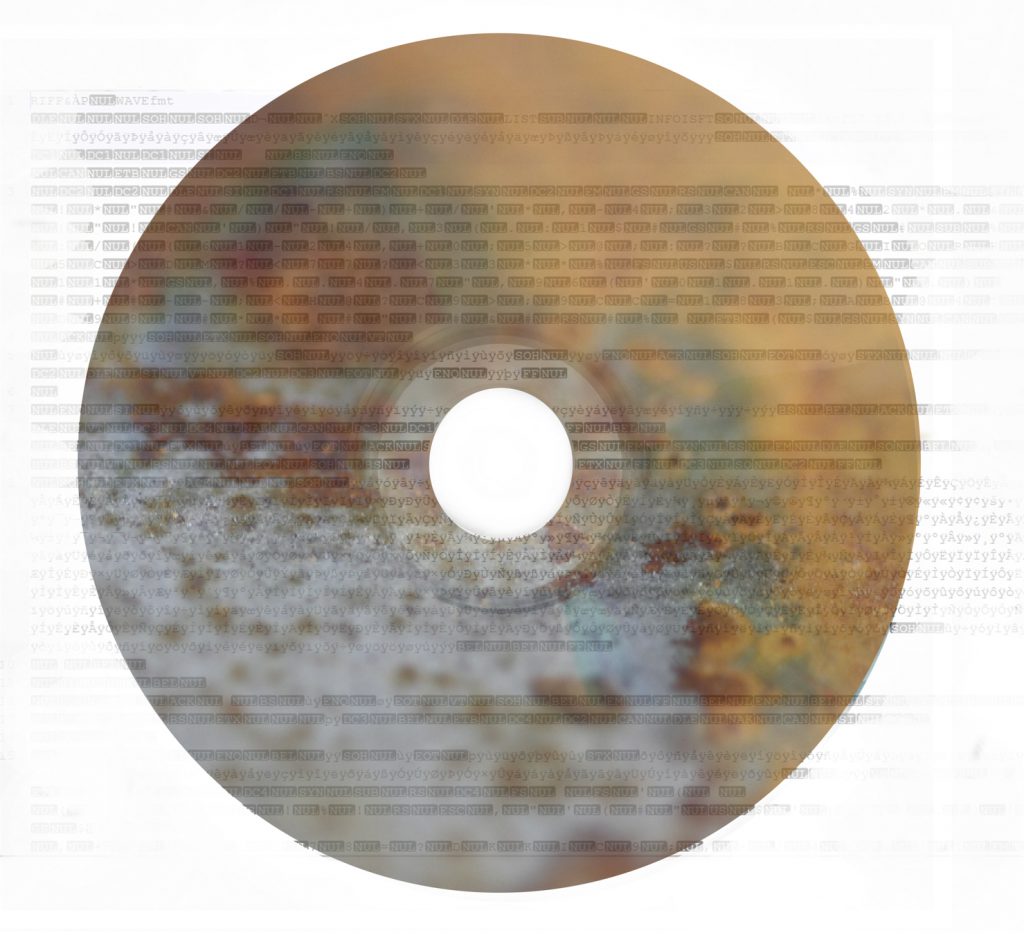
“Fragments” performance evening
Some impressions of the “Fragments” performance evening that took place on October 2, 2019 at the Auditorium for Rotting Sounds, featuring Tobias Leibetseder, Angélica Castelló, Elisabeth Flunger and Thomas Grill.
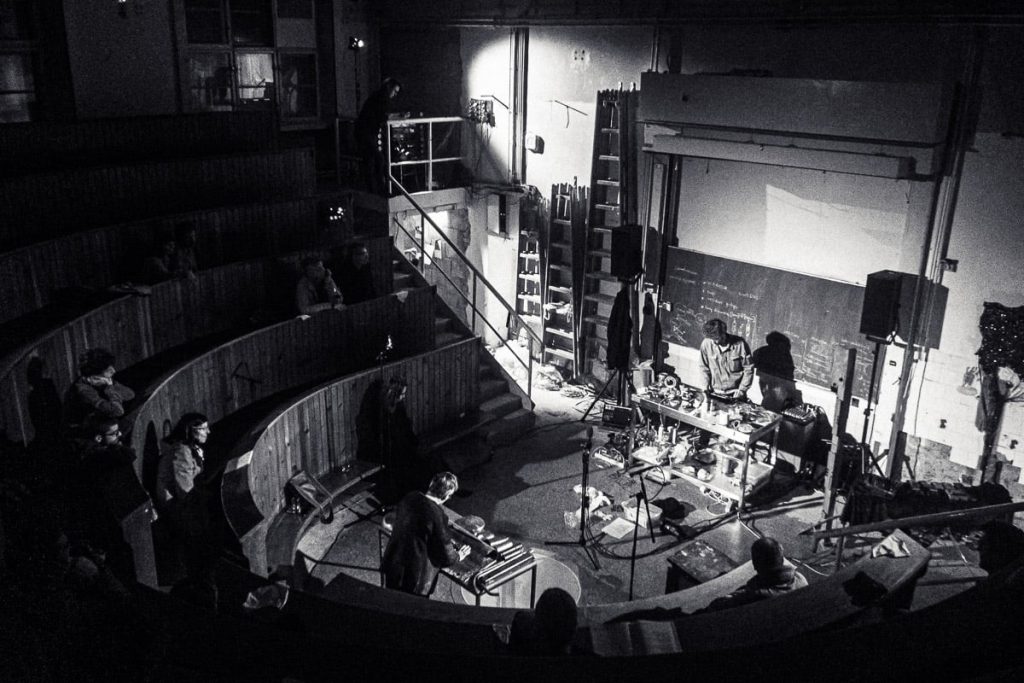
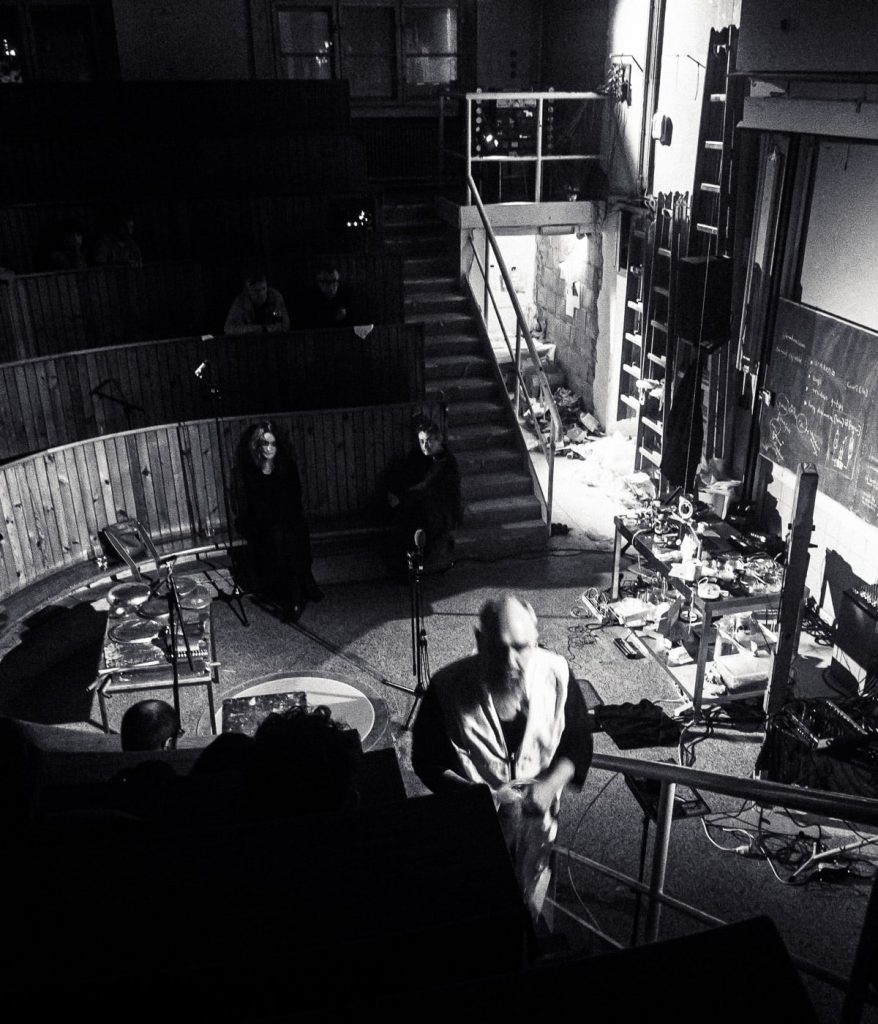
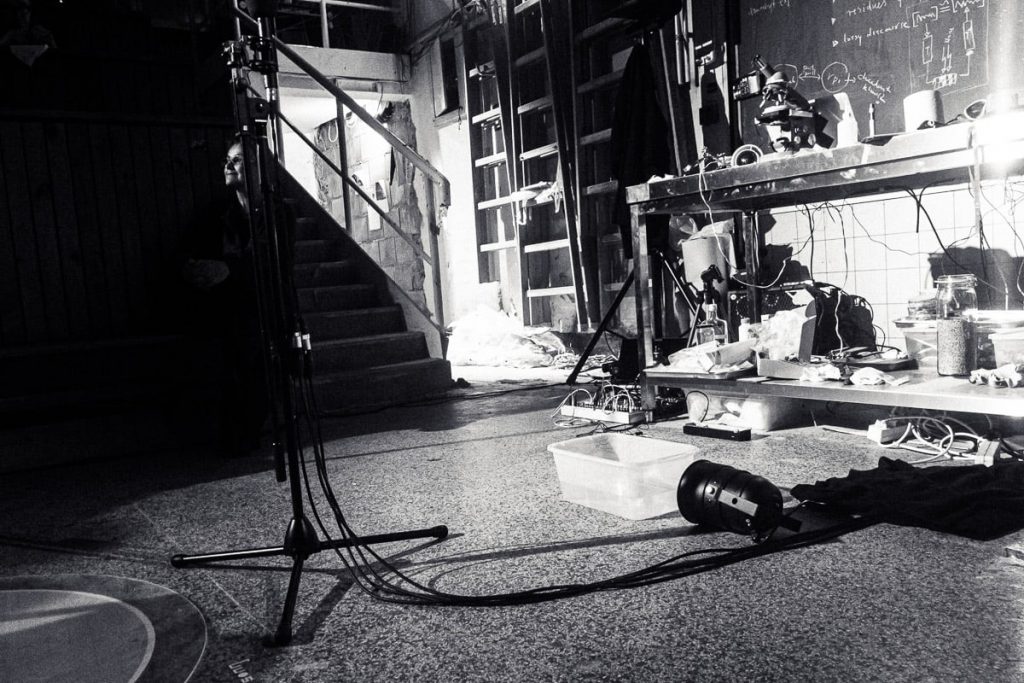
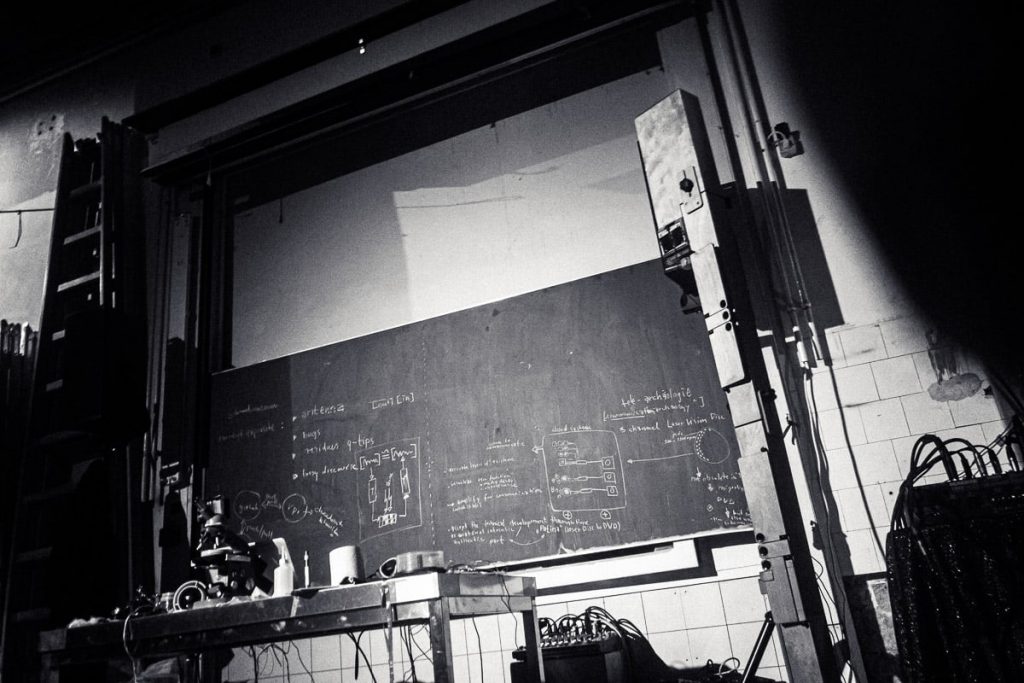
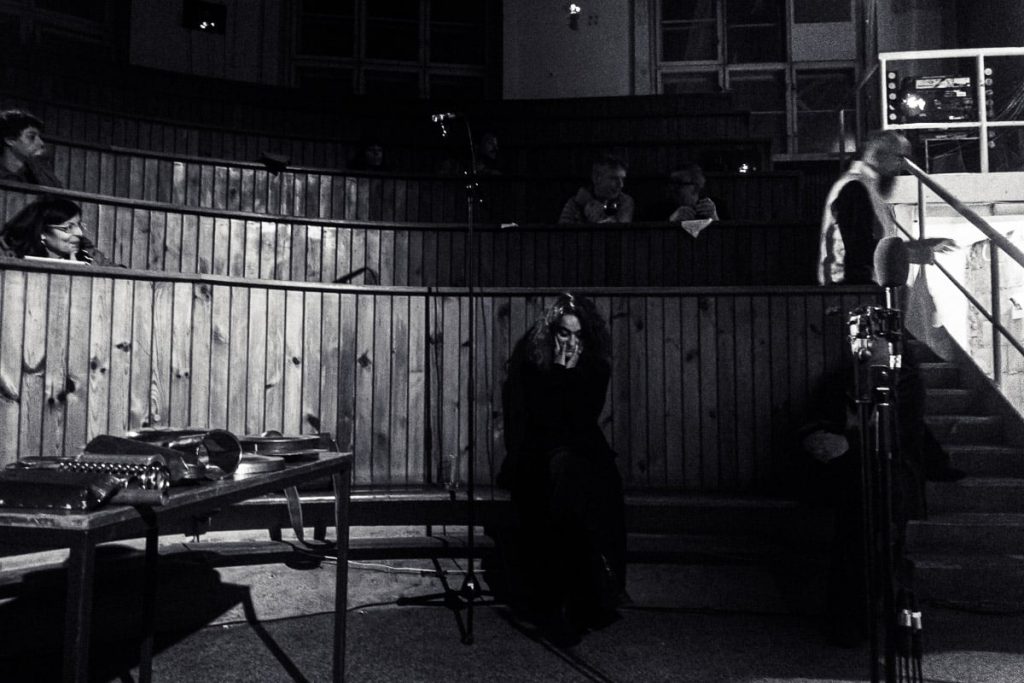
European Researchers’ Night, September 27
We took part in this year’s European Researchers’ Night, showcasing a broad range of research projects at the University of Applied Arts Vienna.
From our ongoing research, we presented a couple of exemplary positions, such as Tobias Leibetseder’s “Fragments“, Almut Schilling’s and Till Bovermann’s “CD-R(ot)“, a part of Almut’s “The Carrier” installation, Till’s take on “Data Forensics”, as well as Thomas Grill’s “Mutual understanding” and “Reference Tone“.
Symposium Virtual Art at the Museum
The Rotting Sounds Project was part of a presentation at the Danube University reflecting on the museums collecting digital art.
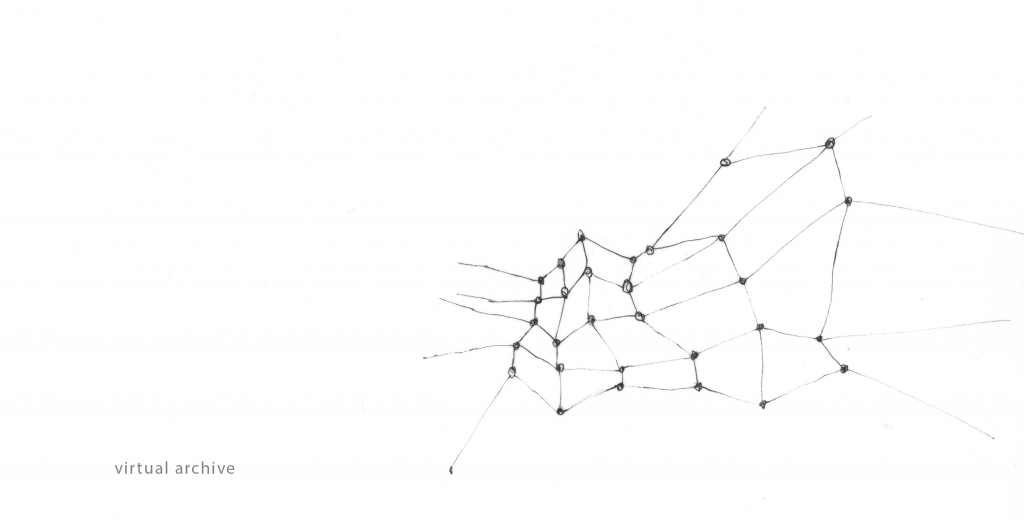
Mutual understanding @ Ars electronica AI x Music festival, September 7
Our installation “Mutual understanding“ was selected for the AI x Music festival, part of this year’s Ars electronica festival, taking place at the monastery of St. Florian.
We had a great outside location in the Garden of the Sommerrefektorium, even if the weather was partly rainy. The installation could withstand the humid weather.
Rotting sounds masterclass at Herzen University, St.Petersburg, May 23
The “rotting sounds” researchers Thomas Grill, Till Bovermann and Almut Schilling were invited to conduct a masterclass at the Institute of Music, Theater and Choreography of the Russian State Pedagogical University A.I. Herzen, above all with the students of Andrey Bundin.
After an introductory presentation on the concepts of the research projects, we worked with/on “digital artefacts” that each of the participants brought to the workshop. The focus was on the notion of the “digital trinity”, we have established, consisting of storage material, information content, and interpretation.
Buffer Manipulations at Instruments Make Play
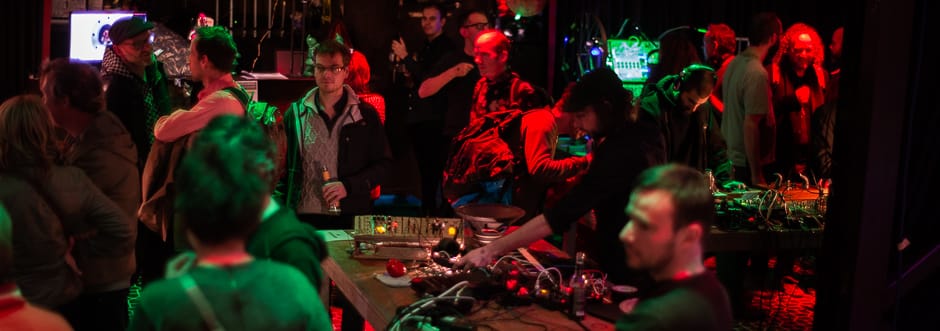
I represented RottingSounds at the festival/fair “instruments make play” that took place at WORM in Rotterdam, NL last weekend. I was welcomed with my “Buffer manipulation” setup in a very relaxed and informal atmosphere, in which many curious visitors stopped by to ask questions.
